by Nathaniel R
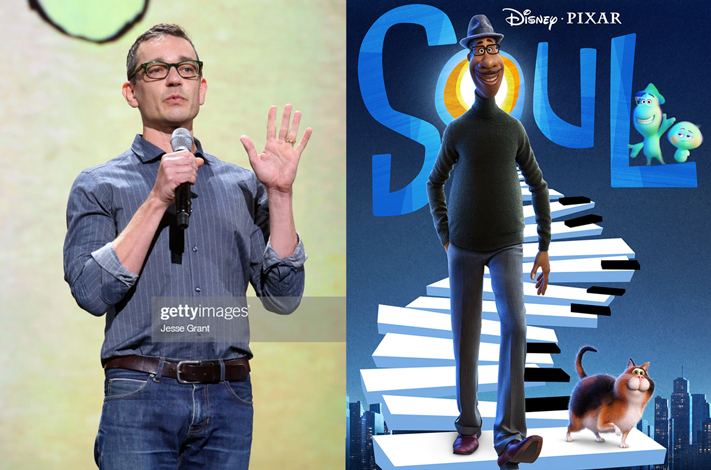
Pixar's Soul centers around a music teacher Joe, who feels he missed his calling. He always wanted to be a famous jazz musician. Through the course of the spiritually minded adventure, which takes us from Earth to The Great Beyond and The Great Before and back again, Joe comes to understand that his calling was to teach. None us know ahead of time where our lives and career might take us. For instance, I was certain I was going to be an illustrator and ended up in Human Resources and now identify as a writer. This is also true of Pixar's Mike Jones. He was once on our side of the movie world as an entertainment journalist but always planned to shoot movies. "I went to NYU film school to be a cinematographer. You have to take a writing course as an undergrad and the teacher took me aside and said, 'You want to think about writing instead?'" Jones continued to pursue cinematography but, as it turns out, the teacher was right and the seed was planted "I did start to kind of write on my own. And after I got out of film school, I kept writing." This led him to a brief entertainment journalism career until he made the leap to filmmaking, if not in the way he originally intended. Years later he has a thriving career at Pixar as a screenwriter.
We recently spoke to him about the process of developing Soul and what it's like to be a co-writer since Pixar generally has several creatives on each film...
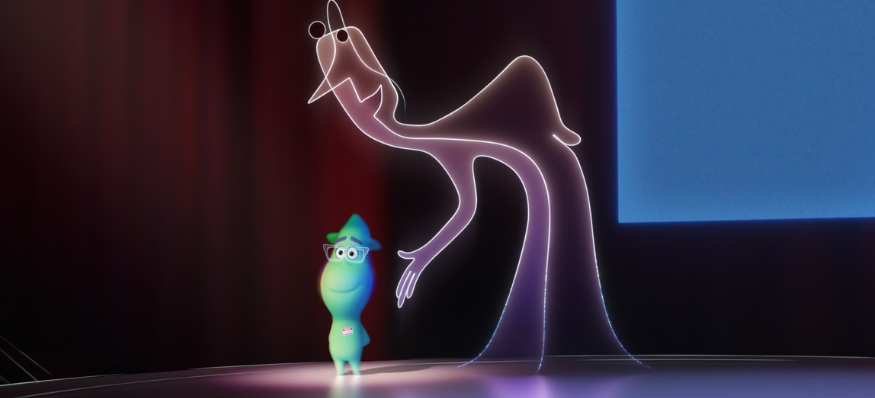
[This interview has been edited and condensed for clarity]
NATHANIEL: There are three people credited with the screenplay on Soul. How did you become involved and get started?
MIKE JONES: I started working with [Director] Pete Docter in the summer of 2016. He had just come off the press push for Inside Out. He was starting to think about what his next movie was and all he wanted was somebody to sit in a room with him and bat ideas back and forth. I had been at Pixar for a few years but always as an independent contractor. When I'm called in, it is usually to help a director frame their idea within the structure of a movie. What could be the engine that drives those three or four acts?
I was just there to kind of help Pete get his feet on the ground. But within two or three weeks he asked if I would come on and co-write Soul with him. Of course I did! And two years after that Pixar asked me to be their staff writer.
NATHANIEL: The auteur theory doesn't work for every movie and Pixar is one of those places that really proves that film is a collaborative art. Don't all the screenplays come up through a kind of writer's room?
MIKE JONES: It is so much more collaborative than any of the other work I've done for any other studio. With other studios I pitched my idea. I get some notes back. I might have to write a treatment, I get some notes back on that. And then they kick you off for anywhere between 10 to 12 weeks, maybe more, to deliver a first draft. And then I'm to send something in that's supposed to blow them away. Sometimes during that process, they've already decided they don't want to do the movie. There's been a couple of times where my agent has called and said 'you need to stop writing because they decided not to do the movie' It was really frustrating.
I imagine.
MIKE JONES: But with Pixar, you can't silo yourself off in a room for very long because somebody is going to come knock on that door and say, like, 'Hey, we need to see some pages. What are you thinking? We're designing this character. Hey, what do you think about this idea?' And also, it's just the fact that you are writing pages that are then going to be drawn by a team of story artists. That is an incredibly collaborative relationship where you're looking to them to make your pages better and not take pages in a different direction than you think they should go. You are plugged in everywhere and there's no time to be by yourself.
That’s very different than any writing most of us who are writers ever do!
MIKE JONES: It's very, very different. But it’s not for every writer. There have been writers that have been hired by Pixar that spent, you know, anywhere between a month to six weeks, they're seeing how things work and saying, ‘Nope, not for me. I can't do it.' And then they would bow out and you get another for that director. That's happened quite a few times. It's definitely not for everybody but I love the energy there. Maybe I'm more of a people person?
NATHANIEL: Interesting. Because it's so collaborative, when you're watching the final movie, do you think 'Oh, that's my scene? a line I wrote!?' or is it more like a 'here is our baby!' communal party?
MIKE JONES: Oh, it definitely feels like ours. After a couple of years of working with Pete on the foundations of this idea, Kemp Powers came on board and he became our really close collaborative partner. I would put forward something and Kemp would plus it, I would plus that and he would plus it a little bit more. And suddenly you have this wonderful kind of milkshake, a movie that has all of these voices inside.
But I can point to certain things. My son loves the line where Moonwind goes, ‘well, the government calls it 5:30" and he was like, 'Did you write that line?' 'Yeah yeah I wrote that,' so i get some respect from my 16 year-old which was a big deal. But mostly, no. It's a mix of different creative voices, a wonderful stew.
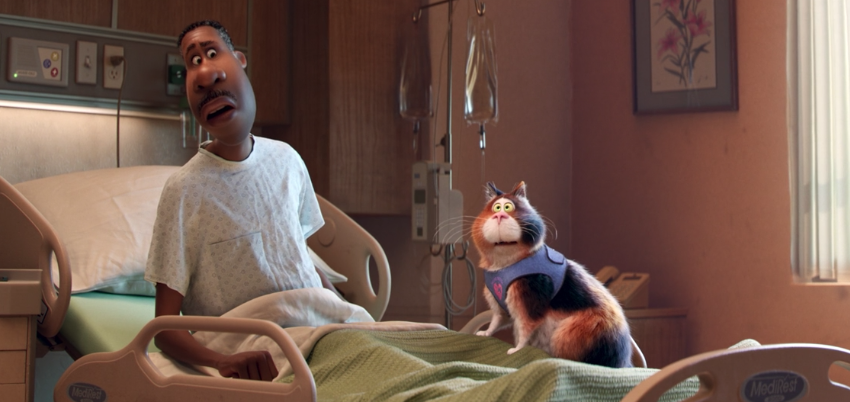
But I heard that the therapy cat was your idea, specifically.
MIKE JONES: Yeah, yeah. That came out of developing the story over many screenings. For many versions Joe never left the You seminar. He was always up there trying to find a way to get back to Earth. At one point, the movie was a heist movie where he and 22 had to steal an Earth pass. That was maybe the first or second version of this movie. We already know that this version was not going to go forward, but this was just to get us to the next step. The truth about Pixar movies is that they are built upon a mountain of failed ideas. Like you're just seeing a little iceberg tip from all of the stuff that we threw out.
At some point you're just working on it so much that you can't be precious about it. With the cat though, that was a story consideration. What we were feeling was that Joe was not able to learn how wonderful his life was. So getting him into the cat was a way of having him watch somebody live his life, to have kind of an objective point of view. It was important that 22 doesn't end up changing Joe's life but just lives in it. This isn't A Christmas Carol or It's a Wonderful Life. It's not a different life that Joe could have had. And that was really important to us.
This point you're making, and so much of the movie, really -- did you ever worry that it go over kid's heads? My favourite scene is when 22 as Joe is trying to counsel that young trombone student who is considering giving up.
MIKE JONES: Mmm-mmm, Connie.
But it's a very quiet and unflashy for being so pivotal. It's crucial to what the movie is trying to put over, that his purpose in life was to be a teacher rather than a famous musician. But that's so subtle for a kid's movie.
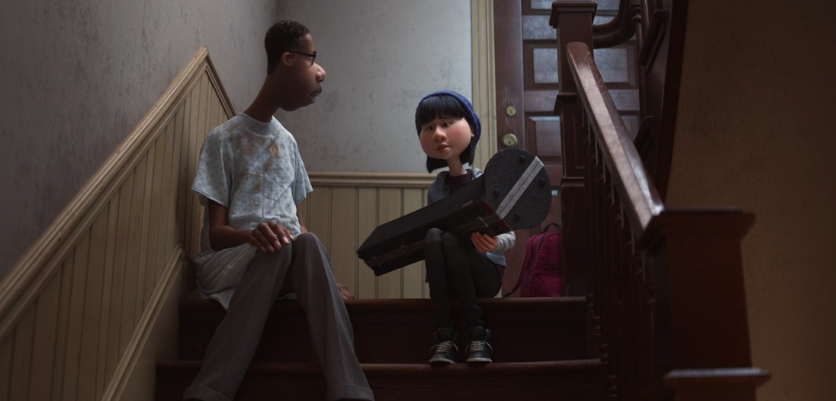
MIKE JONES: Yeah. I mean, we were as worried about that as I heard that they were worried about Inside Out not connecting with kids. We brought a group of kids to come in and watch one of the later versions of the movie, just so that we could see where they were engaging and where they weren't. We were shocked at how much kids understood, on their level granted. What we learned is that they might not be able to explain it or voice it as well as adults, but they do get it. I love that because I feel like when a kid watches it five or ten years later more layers will reveal themselves.
I think that's why Pixar movies have such longevity. We're asking big questions but we're also putting in breadcrumbs of entertainment and comedy that can lead a young kid to have a wonderful experience watching it.
You've seen this with your own kids, I take it.
MIKE JONES: My 10 year old is actually one of the voices in Soul. What does he say? I wrote the line. I can't remember! He's one of the personalities in the corporate videos. It's something like 'I'm a wallflower who is dagnerously curious.' He loves the movie. So I can't wait to show it to him again in five years just to see what else he'll get out of it.
NATHANIEL: In terms of the spiritual elements of Soul -- I'm assuming that was difficult to balance. Obviously you don't want it to represent any particular religion.
MIKE JONES: Right.
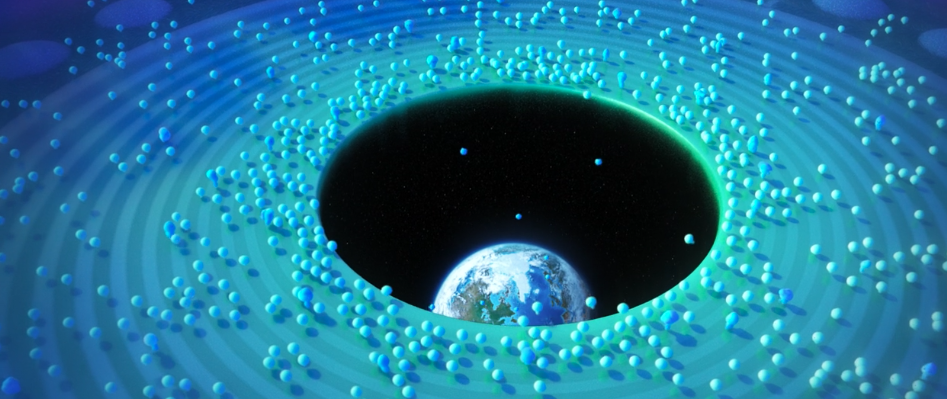
But at least for me, I grew up Mormon. So for me, The Great Before was like, 'Oh, it's the pre-existence!' you know, which is this Mormon concept.
MIKE JONES: We tried to educate ourselves as much as we could on what different concepts of the Great Before were. Mormonism was one of them that we looked at. We did bring in experts to talk to us about it. Once the story started to take shape, the world started to function around what we needed to put in front of the characters, if that makes sense.
Yeah.
MIKE JONES:With all of our movies we're introducing our audience to characters that we want them to love and to follow no matter if they make the right or wrong decisions. If we're doing our job right within five or ten minutes, people are going to be like, 'I want to see what happens to that guy / that soul.' And so at that point, the movie for me becomes not about what we are representing of the afterlife or different faiths, but about these characters. People will separate their own beliefs and follow this particular universe.
I hope it worked, but it was a concern. At one point we had a corkboard, with all these different branches of Christianity in this giant flow chart. And then at the very bottom, it said 'this is only a fraction'. Pete and I would look at it and go like, ‘How do we make something that encapsulates all of this, not to mention, like, Hinduism and Judaism and Mormonism ? All of them. The only way we could go forward was by focusing on the characters.
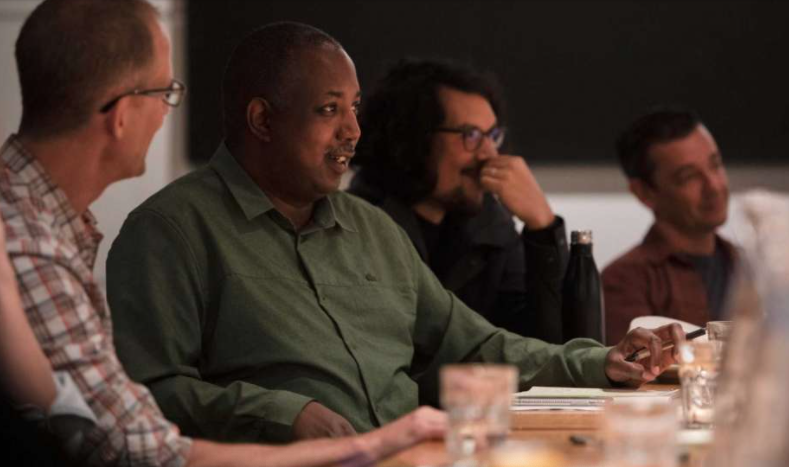 Soul's creative team from left to right: Pete Docter, Kemp Powers, Trevor Jimenez, and Mike Jones.
Soul's creative team from left to right: Pete Docter, Kemp Powers, Trevor Jimenez, and Mike Jones.
It obviously worked. The response has been so positive. Okay one more thing. "The Zone" is a fun concept within the movie about creative souls. When in your career have you most felt 'in the zone'?
MIKE JONES: There were definitely a lot of times writing Soul. There is one sequence where Joe 'plays' his life. He takes all the objects that 22 has collected and plays it. When I wrote that sequence it was shortly after my father had passed away. I was incredibly emotional. We knew what we needed Joe to do. We just didn't know how to get Joe there. And so writing that sequence definitely felt like I was tapping into something. At Pixar sometimes you enter the zone with other people. You're watching a sequence come together and it just hits.
And when an artist shows their work, it kind of puts all of us in the zone. Trevor Jimenez storyboarded the moment where Joe rips through the membrane. He was obviously in the zone when he was drawing that. And when we saw it, we just felt it, it was so good. Trevor is one of great gifts to the studio. He's fantastic.
Before we go we can't fail to mention Luca. The trailer just dropped and you're a co-writer on that one too albeit with a different team. Was that a similar process?
MIKE JONES: I came onto Luca after I had wrapped Soul. I had worked with [the director] Enrico Casarosa previously, and I got along with him really well, and I really like [co-writer] Jesse Andrews a lot. Iniitally I think they just wanted another set of eyes in the room. I would come in and see their reels and just give some comments about where I think it was really jelling or coming apart. As you do with any crew that you build at Pixar, you're kind of looking for the people that can most help you with what you're trying to do. And so they asked if I would come on and co-write with Jesse.
To force a writing partnership is not an easy thing. Jesse and I ended up having a really great meeting of the minds about what we really wanted to say with this movie. Jesse had been on it for two years before me. He had really put in the time. This is about the greatest summer in these two boys lives and Jesse's voice with both of those boys was just so wonderful and hilarious and special and emotional. I felt in many ways that I'm just helping Jesse 'plus' that by trying to kind of apply a little bit more of story foundation.
Have you seen the final film?
MIKE JONES: I haven’t! They closed the campus when Soul was only half finished. Everybody grabbed their fancy computers and went home and got high speed internet access and tried desperately to finish the movie and they did. They took all those lessons and they applied it to Luca which was entirely animated outside of campus. I've seen some of the sequences and they're stunning. It's very different from Soul. [Pete Docter and Enrico Casarosa] are very different artists who have a different way of saying things. And it's great.
Soul is currently streaming on Disney+. Luca hits movies theaters on June 18th, 2021.